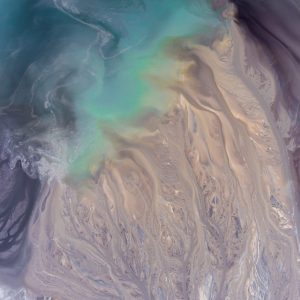How to Produce Your Own Art Portfolio Website

Every successful artist in this digital era requires an online portfolio. This is the most powerful and accessible way to showcase your work to the entire world and connect to new customers, or even other artists. Establishing a website to showcase your art portfolio can be very daunting if you’ve never done so before. In this article, we will provide you the factors you need to consider prior to the launch of your website.
This guide is ideal for all artists, including:
- Idea Artists
- Storyboard Artists
- Animators (2D & 3D)
- Character designers
- Wallpaper designers
- 3D modelers/riggers
- Illustrators & electronic artists
Let’s go into the process:
Is your art optimized for digital sharing?
Before you should make this site, you have to give thought on how you will present your art. For example, if your art is digital, then it is simply a matter of exporting within your creative suite. If your art is sculpture or painting based, you will need professional high quality photos taken. When you do this, be sure to have different resolutions available, such as a low, medium and high quality version, as images that are too large may slow your site down – you do not want that.

Select a Content Management System
A content management system is an online platform in which we organize and display our services. Abbreviated to just CMS, perhaps the most well-known is WordPress, which powers over 29% of the internet. Other popular CMS’ include Squarespace, Craft, and Wix. If these platforms don’t align with your vision and you truly want to invest in this endeavor, then you should invest in a custom content management system.
Select hosting
A hosting website is where you will purchase and buy a relevant domain name. Typically for the art industry, you will try to secure a name that is your first name, last name, with the word ‘art’ on the end. This shows relevancy to searchers and digitally amplifies your social footprint. An example URL would be (yournameART.com)
Launch Your Website
Not having a website in this era is damaging. You miss out on potential opportunities, and you can lack credibility. A website is necessary to have a national or global presence in the art world. One way you can stand out is to have an exceptional website. The most commercial CMS’ tend to run off templates, so if you have an innovative idea of presenting your portfolio, then you should consider business website design solutions from a professional. Be clear in how you present your work, and emphasize your contact information. The clearer the presentation, the easier it is for the end-user to digest. Over time, if you regularly post fresh content, you can increase the power of your website.
Setup Social media
Social media is how you will network and further bolster your online presence. Platforms you will want to invest in are:
You will want to secure the social media handles that are identical to the title of your website. If you can acquire all the same handles, this is excellent. This allows users to search you across all social media websites and find you easily. The networking aspect is how you connect to your fans and create more ways for interested individuals to contact you.
Security for your website
The security of your website is paramount. It will protect your own information, and others should you have a mailing list. Hackers can also hijack your website and the damage from that can cost you financially. Investing in network security services can give you powerful protection. Another option to consider is ‘domain coverage’. This will hide your private information from a ‘WHOIS’ search from being performed. A ‘WHOIS’ search is when someone searches for your domain to check who owns it, and it often displays your contact email. In some circumstances, it can show your phone number and even address. Ask an IT consultant today to secure your website and private information.
Getting found!
You have set up your online portfolio, but you aren’t getting any hits? This is because your online visibility is low or non-existent. There are two options you can take to alleviate this. Your choices are Google Adwords or search engine optimization. Google Adwords is pay per click advertising, and depending on your targeted keywords, it can become quite costly if there is stiff competition. The benefit of Google Adwords, is that the effects of it are immediate. If you have paid the highest amount for your keywords, you will appear at the very top of the search for that query. Search engine optimization, or SEO, is building your online visibility through organic practices. This takes longer to settle in, but the results are powerful and long lasting. If in budget, a combination of both is often ideal. There is no point being the best artist no one has ever heard of!

